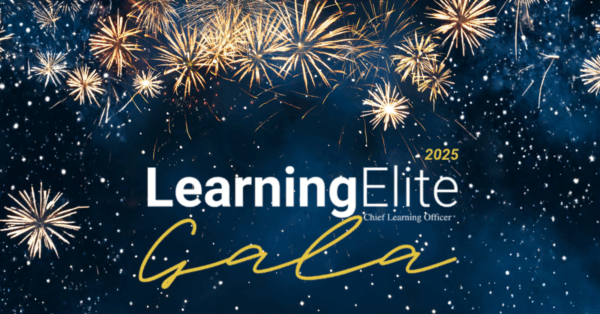Successful organizations can embrace change and the ups and downs that come with it. These organizations are always doing their best to keep progressing. This is a “Gold Medal Mindset”—making a constant choice to overcome challenges and demonstrate the ownership required to keep moving forward and deliver what matters most.
This mindset came in handy for the United States men’s volleyball team at the 2008 Summer Olympics in Beijing, as well as the years in training leading up to the event. Going into the games, the team felt the pressure to perform well.
But on August 9, 2008, tragedy struck. The parents of team head coach Hugh McCutcheon’s wife were attacked while touring the Drum Tower, and McCutcheon’s father-in-law Todd Bachman was killed and his mother-in-law Barbara Bachman was critically injured.
The team continued to play the tournament while their head coach was away to be with his family. Winning gold, of course, was important, but what mattered most at that point was being able to come together as a team and demonstrate the ownership required to deliver that Gold Medal performance.
In the aftermath of the horrible tragedy, we embraced the Gold Medal Mindset and felt even more compelled to deliver, and despite the tragic circumstance, we did. McCutcheon returned after three games, and the team went on to win the Olympic gold medal for the U.S. in Beijing.
Achieving a Gold Medal Mindset encompasses five traits:
- Creating clarity around what matters most.
- Committing to openness and candor.
- Making communication a strength.
- The power of shared ownership.
- Choosing to operate in Winner Mode vs Whiner Mode.
In this article, we will go into more detail about these traits and how this mindset can transform yourself, your team and your organization.
Trait No. 1: Creating clarity around what matters most
This is a trait most certainly gleaned from years of experience and training leading up to the Beijing Olympic Games in 2008. On the USA Men’s Volleyball team, what mattered most to us was abundantly clear: We wanted to be Olympic champions. Everything we did leading up to the Games was connected to this outcome, from training to sleeping to how we interacted with one another.
For many organizations, creating clarity around what matters most means identifying the most important business outcomes you’re wanting to achieve, whether that be in the short term or long term. Organizations that are intentional and clear with their desired outcomes tend to have a workforce that is more committed and engaged. This is increasingly important for organizations as engagement in the U.S. has officially hit an 11-year low, according to Gallup.
Trait No. 2: Committing to openness and candor
This trait takes a lot of effort to successfully adopt within a team or across an organization. This is because levels of trust and respect need to be well-established and expertly maintained.
A commitment to openness and candor doesn’t mean we are allowed to say anything we want without consequence. It means intentionally creating an environment where we can share our perspectives and experiences, learn and listen from one another and work together toward achieving what matters most.
Leaders, especially learning and development leaders, are in a great position to encourage a culture that accepts openness and candor. Beyond simply offering programs and initiatives that develop these skills in individual learners, L&D leaders are natural people leaders who can emulate this in their day-to-day life.
Trait No. 3: Making communication a strength
Many clients who work with Gold Medal Mindset want to see an improvement in communication within their organizations. It’s rare when we hear that effective communication is already a strength within an organization.
A strong culture of communication requires everyone to do their part in ensuring the workplace is a space where everyone can contribute authentically to the success of the company. This begins with leaders and managers, but requires commitment from the entire organization. This trait is closely connected to how effective we are at ensuring trait number two is also working day-to-day.
Trait No. 4: The power of shared ownership
The fourth trait is about being able to connect with each other around the impact we all have on our ability to deliver what matters most. Even the most mundane daily tasks are connected directly to the success of organizations. While we all may show up differently, bring different values or accomplish different tasks, it’s important to remember that our roles are all equally critical.
As a leader, you can encourage this type of thinking in your employees by ensuring your employees know their work is valued. Tell them their contributions to the organization are important, and express it through your daily actions, i.e., being an active listener, expressing gratitude and respect toward your employees.
Trait No. 5: Choosing to operate in Winner Mode vs Whiner Mode
When it comes to facing challenges, what is your mindset? Are you in Winner Mode, or Whiner Mode?
People who embrace the Gold Medal Mindset make the consistent choice to operate in Winner Mode and minimize the amount of time we spend in Whiner Mode. When we do choose to work in Whiner Mode, we tend to focus on why something can’t be achieved, we look for fault and feel the need to blame others. We feel powerless and static. This type of mindset is toxic to organizations, especially during times like these, where rapid technological advancement and business transformation is the norm.
When organizations operate in Winner Mode mode, the focus is on progress. These organizations aren’t afraid of challenges or barriers on the journey to success. Winner Mode is a powerful mindset, as you are focusing on achieving the end result as opposed to why something is happening to you.
Looking ahead
Too many organizations leave workplace culture up to chance. The Gold Medal Mindset is a great framework for organizations that want to effectively manage their workplace environment as well as individual employee development.
Hundreds of organizations have been able to apply the framework and have seen outstanding results.
Ryan Millar will be speaking at the 2024 CLO Symposium in Tucson, Arizona. For more information about speakers, registration and more, please visit our CLO Symposium website.
















